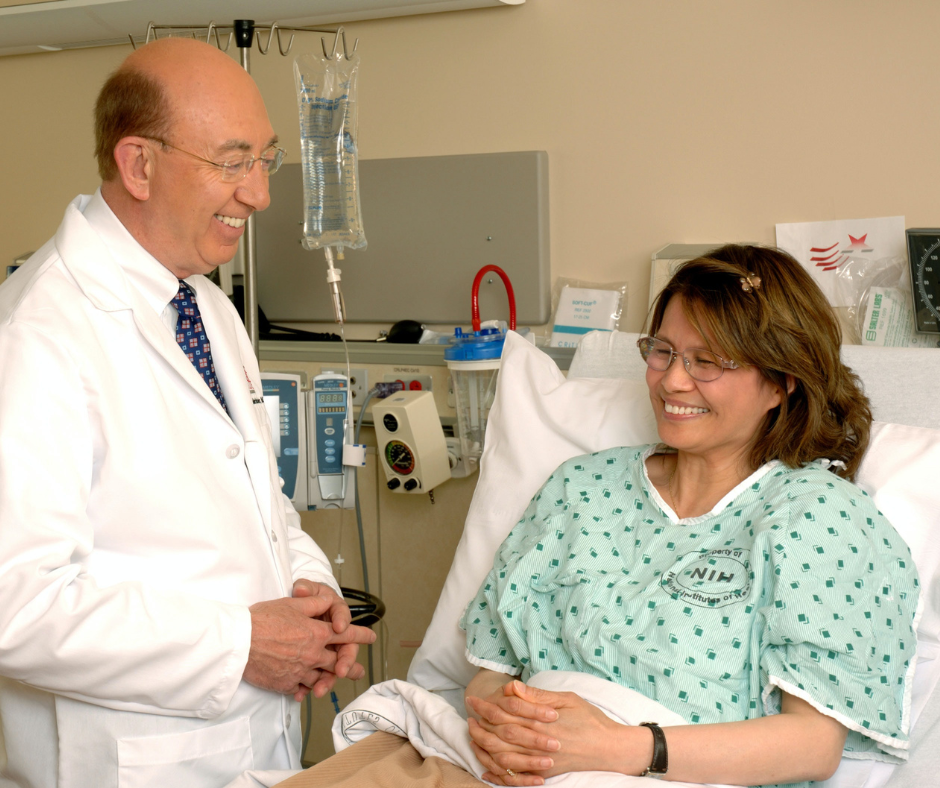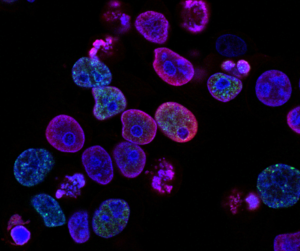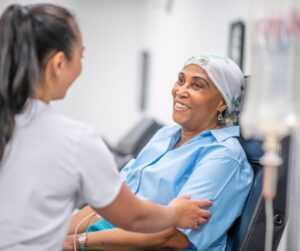Ellen Mullen RN, PhD, GNP-BC, ANP-C
Since the 2006 publication of From Cancer Patient to Cancer Survivors: Lost in Transition by the Institute of Medicine (IOM) on cancer survivorship, improvements have been made in the care of survivors. According to the report, cancer survivors were “lost in transition” and primary care providers (PCPs) did not have clear guidelines on how to care for them.1 The report was instrumental in the development of survivorship care models, survivorship guidelines and survivorship care plan (SCP). There are several survivorship care models but the one that has been shown to improve patient and system outcomes is the one that includes advanced nurse practitioners and physician assistants (advanced practice providers or APPs) as providers for cancer survivors.2 Cancer and its treatment are very complex and can cause physical, psychosocial and financial issues, even after completion of treatment.3 It is imperative that health care providers understand what constitutes survivorship care to be able to deliver the most holistic and comprehensive care. APPs play important roles in delivering quality care for this patient population.
Survivorship care includes 4 major components: (1) prevention, detection and surveillance of new or recurrent cancers, (2) assessment of medical and psychosocial effects, (3) interventions relating to consequences of cancer and related treatments, and (4) coordination of care between specialist and primary care providers.3,4 One of the responsibilities of APPs in survivorship clinics is the provision of the SCP, which is done at the initial visit to survivorship clinic. The SCP must include the cancer stage/grade, dates of initiation and completion of treatments, list of treatments (surgery, chemotherapies, radiation, hormonal therapies, immunotherapies, etc.), results of any diagnostic tests psychosocial, nutritional, and supportive services provided, and contact information of clinicians and institutions.3,4,5,6 The IOM recommends that every cancer patient should be provided a copy of their SCP upon completion of treatment, but this is often overlooked by the treating physician. Therefore, it is imperative that APPs provide and review with patients their care plan. The SCP is tailored to each patient’s cancer and treatment history, and recommended screenings should be based on risk factors.5
In survivorship clinics, APPs can function independently and fully within their scope of practice. Some practice independently or as part of multidisciplinary team. APPs obtain medical history, perform physical examinations, assess for long-term toxicities, and order tests such as laboratory tests, x-rays, and scans. APPs can interpret lab and test results and intervene accordingly by prescribing medications as needed. The survivorship clinic focus is more on cancer care and surveillance, but APPs in survivorship clinics may also manage acute and chronic illnesses. They can screen for chronic illnesses, collaborate with PCPs, and make referrals. APPs provide counseling about living healthy lifestyle, such as diet, physical activity, and smoking cessation. Because it has been documented that the highest level of care is achieved when both oncologist and PCPs jointly manage patients, it is important that APPs emphasize to patients that survivorship visits do not replace their PCP visits.. 2,3
Sometimes the ongoing care with an oncologic clinician or specialty care can lead to financial constraints due to travel and housing fees, so survivors may elect to follow up with their PCPs. In this case, APPs can help transition survivors’ care to their PCP. Communication between providers is a key to successful transition and APPs can assist with this by providing the patient with a copy of their SCP that outlines patients’ disease, treatments, surveillance recommendations, and identification of late treatment effects and signs/symptoms of disease recurrence.4 If a progress note or the after-visit summary is available, a copy should be given to the patient. Patients are encouraged to bring copy of their SCP to their next PCP visit but in some complicated cases, a telephone call to the PCP may be necessary. Good communication between providers can lead to better outcomes for the patients.
Survivorship clinic APPs also function as resource people or health navigators. APPs can direct survivors to reliable resources, such as those from the American Cancer Society, the Leukemia and Lymphoma Society, the National Coalition for Cancer Survivorship, and Livestrong. 4,5 APPs can also help find assistance with housing, prescriptions, and free health prevention and promotion programs, or they make referrals to other disciplines such social workers and/or case managers. Survivorship clinic APPs can also direct PCPs to reliable websites with guidelines and recommendations for cancer survivors, such as the National Comprehensive Cancer Network (NCCN), American Cancer Society, and American Society of Clinical Oncology (ASCO).7
Another role that APPs play in survivorship clinic is as a counselor. The hardest part of being a clinician in a survivorship clinic is delivering the news of disease recurrence or secondary malignancies. Patients may express different emotions during this time such as shock, anger, disbelief, sense of loss, anxiety and depression. APPs must consider if the patient wants a family member or significant others present during the visit and recognize that patients need time to process the information and discuss plans with family members. In these cases, APPs can offer counseling, listen attentively and answer questions, and may offer patients the option to speak with a social worker or a chaplain. A follow-up visit may be necessary to help clarify any misconceptions or answer more questions that they may have. APPs should support patients’ decisions and help with transition of care.
It is evident that APPs play important roles in survivorship clinics. As the population of cancer survivors continues to grow, coupled with increasing focus on survivorship care, APPs will continue to be key providers in survivorship clinics and beyond. Though progress has been made since the IOM report in 2006, there are cancer survivors that are still lost in transition due to certain barriers. APPs can help fill in the gaps for survivorship care as their role extends beyond being clinicians. Eventually, APPs may see themselves being more involved in research, lobbying for better health care and policymaking, and functioning as educators.
References
- Hewitt, M. E., Greenfield, S., & Stoval, E. (2006). From Cancer Patient to Cancer Survivor: Lost in Transition. Washington, DC: National Academic Press.
- Sun, V., Clausson, J. M., Fujinami, R., et al. (2015). The role of the APN in survivorship care planning, 205 (6), 64-70.
- Cooper, J., Loeb, S., & Smith, C. (2010). The primary care nurse practitioner and cancer survivorship care. Journal of the American Academy of Nurse Practitioners, 22, 394-402.
- Ross. N. (2018). APRN-led clinics enable comprehensive survivorship care. ONS Voice. https://voice.ons.org/news-and-views/aprn-led-clinics-enable-comprehensive-survivorship-care. Accessed April 28, 2021.
- Mullen, E., & Mistry, H. (2018). Managing cancer survivorship issues. The Journal for Nurse Practitioners, 14(4), 337-343.
- Thom, B., Boekhout, A., Corcoran, S., & Adsuar, R., et al. (2019). Advanced Practice Providers and survivorship care: They can deliver. Journal of Oncology Practice, 15(3), e230-237.
- Pratt-Chapman, M. (2015). Cancer survivorship: the role of the nurse navigator. Journal of Oncology Navigation, 6(6). https://www.jons-online.com/issues/2015/december-2015-vol-6-no-6/1381-cancer-survivorship-the-role-of-the-nurse-navigator. Accessed April 28, 2021.

Ellen Mullen RN, PhD, GNP-BC, ANP-C
MD Anderson Cancer Center – Lymphoma/Myeloma Department – Lymphoma Survivorship Clinic Lead







